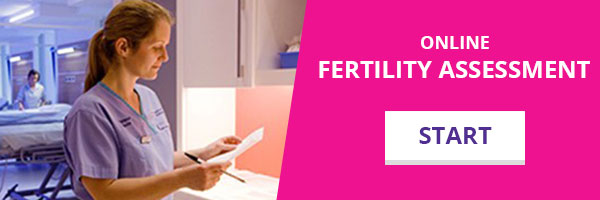What’s the ideal age to get pregnant? And what are the risks associated with being pregnant when you’re older than 35?
Birth statistics for England and Wales show that fertility rates of women in their 40s have trebled since 1991 – so is there really an ideal window for women to get pregnant? Or is it simply a matter of choosing the most ‘practical’ time?
Whilst having financial stability and a flexible career is important, there can be difficulties with getting pregnant above the age of 35. Not only can it be harder to get pregnant when you’re older but there’s also an increased number of risks involved.
If you’re in your 20s
Biologically, your 20s is the prime time to become pregnant. Fertility levels are high and the risk of complications is low. Your body is prepped for a baby, but many women may put off having children until after they’ve established themselves on the career ladder – which usually occurs around the age of 30. Physically, it might be easier for a woman to conceive in her 20s because there’s a lower risk of health complications such as high blood pressure, or gynaecological problems such as uterine fibroids.
If you’re 30-35
In your 30s, there’s a slightly lower chance of getting pregnant. The risks of having a miscarriage are slightly higher, too, but ultimately, the healthier you are as an individual the more likely you are to have a healthy pregnancy. Your chances of becoming pregnant between the ages of 30 and 35 are still good and, logistically speaking, it’s a great time to conceive. Career-wise, you’re in a more flexible, financially comfortable position at this stage in your life compared to your 20s.
If you’re 35-40
Beyond the age of 35, there are slightly higher risks associated with pregnancy, affecting both the health of the mother and baby, including high blood pressure, gestational diabetes and foetal abnormality. However, if you control your health, stress levels and general lifestyle, then there’s every chance you’ll have a healthy pregnancy. If you’re wanting to get pregnant after 35, then it’s advisable to meet with your doctor often, track your most fertile days, take prenatal vitamins and maintain a healthy weight. If you’re still struggling to get pregnant after 9-12 months of trying, see your GP, who may carry out screening tests to rule out any fertility issues.
If you’re 40 or above
Many women around the age of 40 still conceive and, although the odds are a lot lower, it’s still entirely possible. If you’re over the age of 45, however, you’re far less likely to fall pregnant naturally. Some couples who are having trouble conceiving after 40 may have success with fertility treatments, although the success rates of IVF do reduce with age just as natural conception does. At the age of 40-42, between one in five and one in ten IVF cycles develop into a successful pregnancy. By 43-44, that drops to between one and five in 100 cycles. However, thousands of women are still able to get pregnant and give birth to a healthy baby past the age of 40. In 2015, 29,000 women over 40 had a baby and 2,000 of those women were over 45.
If you’re considering a baby, no matter your age, it’s always in your best interests to see your GP first, who can advise you on your chances of pregnancy, what you can do to ensure it’s healthy, and the other options available to you, should you or your partner have any fertility issues.





